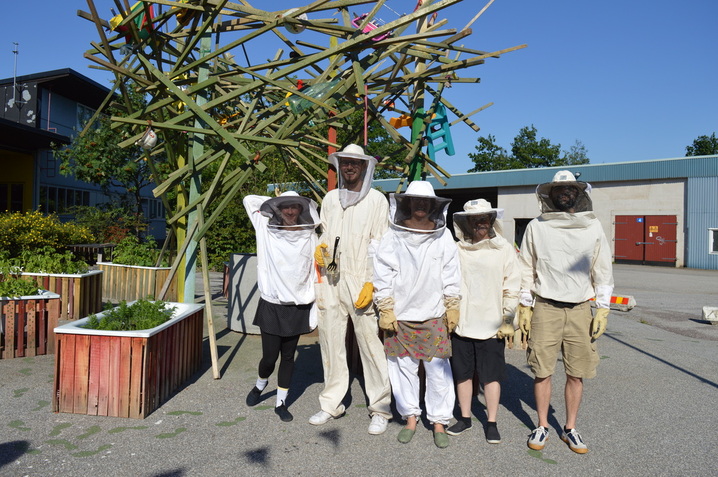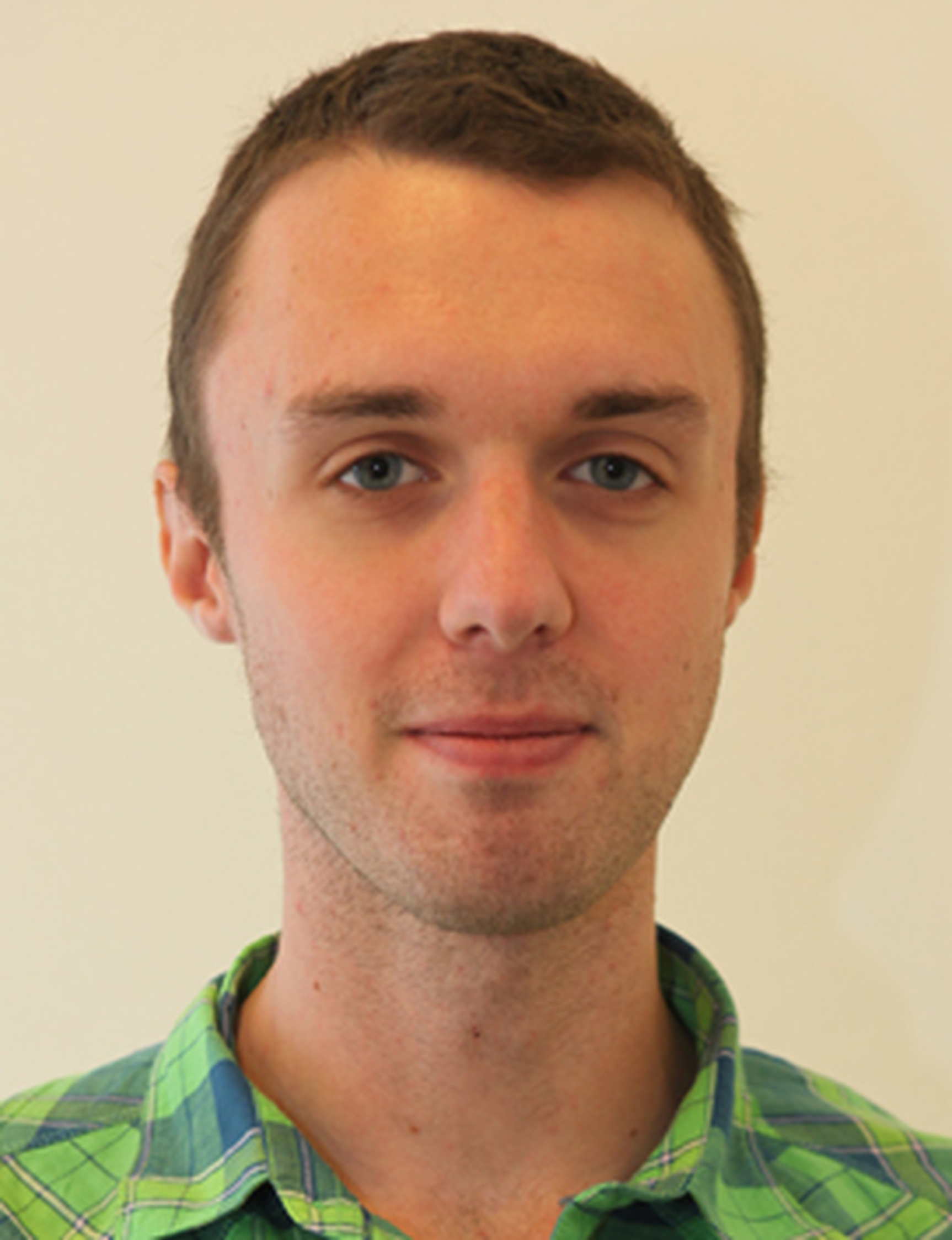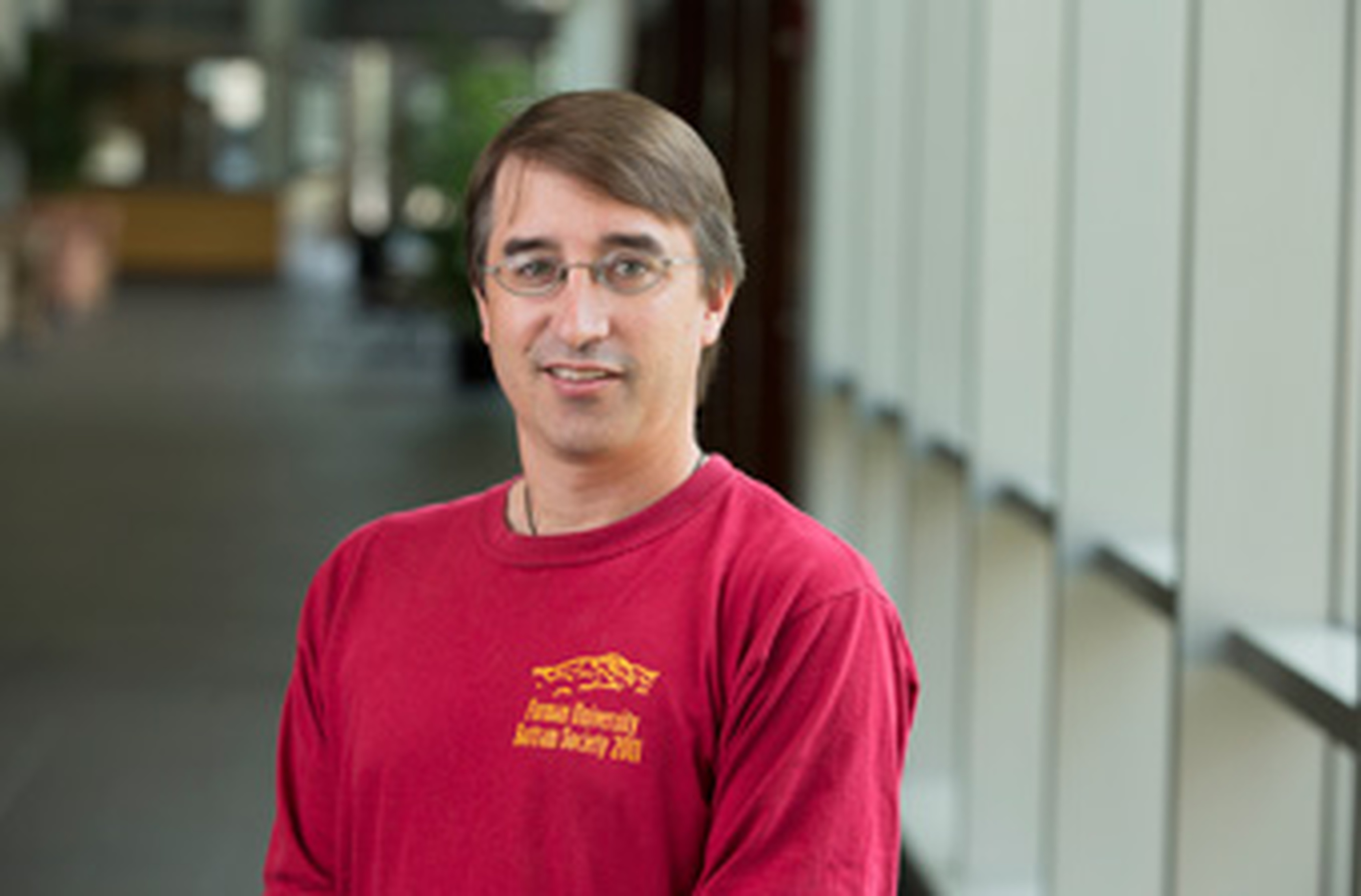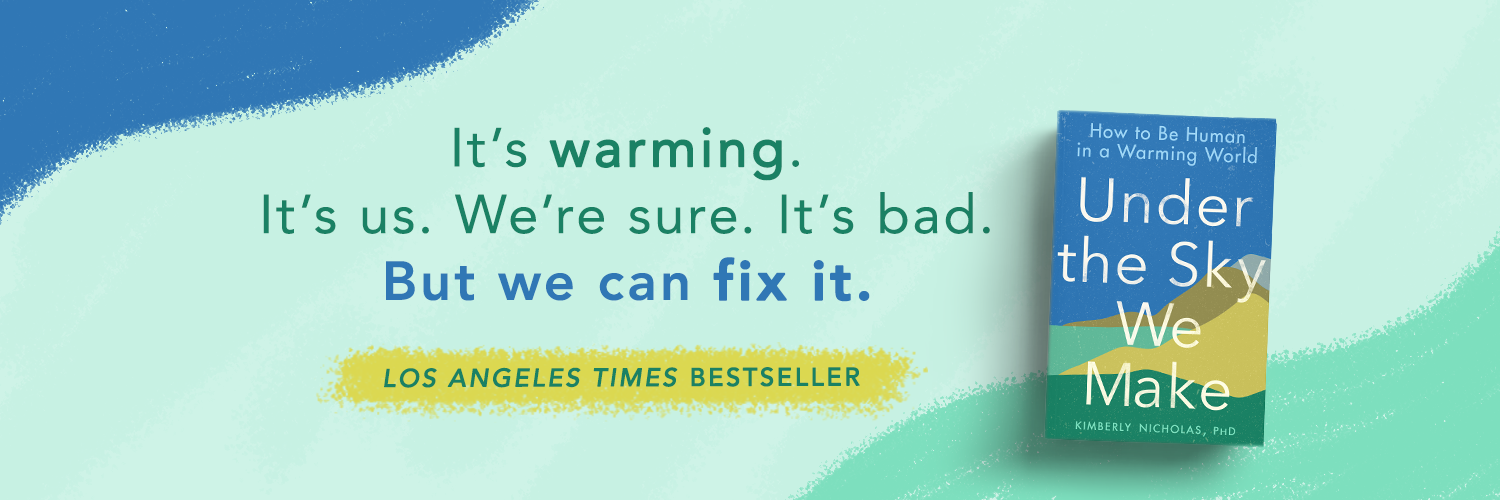|
Our analysis of 54 bachelor's and master's programs in sustainability worldwide has just been published online in Sustainability Science. Congrats to lead author David O'Byrne, now a research assistant at LUCSUS, who developed this publication based on his LUMES thesis. Our coauthor Wes Dripps got involved in the project as co-supervisor of David's thesis while he was on sabbatical at LUCSUS in 2011-2012.
 LUMES beekeepers Dora Adams and Christoph Aberle prepare me and LUCID PhD students Molly MacGregor and Henner Busch to visit their beehive at Stenkrossen in Lund. Photo: Teresa Rauscher. LUMES beekeepers Dora Adams and Christoph Aberle prepare me and LUCID PhD students Molly MacGregor and Henner Busch to visit their beehive at Stenkrossen in Lund. Photo: Teresa Rauscher. Last week, I visited the "Vi odlar" ("we grow!") garden in Lund, to get a tour of the beehive started as a LUMES "Making Change Happen" project by Dora Adams, Christoph Aberle, and Shrina Kurani.
Several LUMES students have been involved in getting salvaged materials (including the repurposed bathtub/veggie planters shown here) and working in the garden, which is a community meeting space and youth project supported through Lund Municipality and other organizations, co-organized by LUMES alum Teresa Rauscher. A local artist has built the tornado sculpture behind us, envisioned as an interactive monument to consumerism (people can come by and add items they no longer need.) The garden is open this summer for visitors to drop-in to learn more about urban gardening and beekeeping- stop by on Wednesdays from 17:00-19:00 at Stenkrossen, Kastanjegatan 13, Lund. Led by Kate Brauman from the University of Minnesota, and along with Bonnie Keeler from the Natural Capital Project, we are convening an Ecosystem Services session at the American Geophysical Union meeting in San Francisco, California. The meeting will be December 15-19, 2014 (we'll find out the exact date of our session in the fall).
We promise excellent, innovative science, and the best selection of chocolate at AGU! Please submit an abstract by clicking on the session link below. Submission Deadline: Wednesday, 6 August 2014. Session 2163: Ecosystem Services: Translating Biophysical Functions to Human Benefits and Values Climate change and land-use changes affect many of the benefits that people derive from nature. Maintaining important ecosystem services requires improved measurement and management of service delivery. However, our ability to model and predict changes in ecosystem services requires linking measures of ecosystem structure and function (e.g., net primary productivity, water flows and quality) with information on the preferences of beneficiaries in order to quantify the goods and services that directly benefit people (e.g., crop yields, flood protection, disease reduction, enhanced recreation). This session will highlight work from a range of disciplines and research areas focused on the nexus of biophysical science and ecosystem service assessment. Submissions that go even further along this causal chain, examining how ecosystem services translate into benefits (e.g., contribute to human health and well-being) and values (both monetary and non-), are especially encouraged. |
Categories
All
Archives
November 2023
|
KIM NICHOLAS


 RSS Feed
RSS Feed

